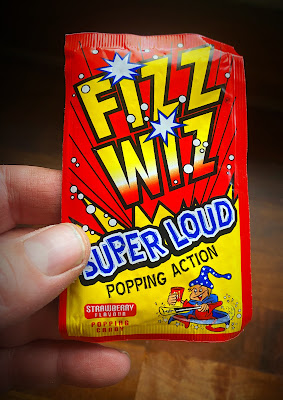Blackouts ? Blackouts ? I hear you say ?
Well yes, you see this week the National Grid is running the fifth test of its blackout prevention scheme to cope with the rise in energy demand as the UK battles a spell of icy weather.
With the drop in temperatures, there is expected to be greater demand for energy as the UK cranks up the heating to stay warm. (-7 as I type this and it's barely got above freezing for days), which for many considering the bleeding cost of energy at the moment, I'm sure it heat one room, or not at all.
Two coal plants apparently had been warmed up and placed on standby, although these have since been stood down, at least we have the option I suppose, but to me papering over the cracks springs to mind, reactive verses proactive. I want to put the heating on and know it's going to work, you see with both kids are off school at the minute, both with quite bad coughs, high temperatures and sore throats (Not COVID), lockdowns certainly wouldn't have helped and looking back over the years they had never been as bad as this.
Now back in 1882, Thomas Edison’s Holborn Viaduct coal plant started generating electricity for public use. It was the first power station of its kind, burning enough coal to provide energy to light 1,000 lamps in the City of London.
The principle of how coal generates electricity is fundamentally the same as in Edison’s day, and similar to other thermal power stations like gas: the coal is burned, heating water to create steam, which spins a turbine to produce electricity.
Throughout the late nineteenth and twentieth centuries, this is how much of was produced. Coal generation peaked in the early nineties, making up over 60% of the mix before the ‘dash for gas’ heralded its decline.
Unlike today, most of Britain's electricity came from coal, and so crisis struck in the 1970s when miners voted to strike over wages for six weeks between January and February 1972.
While globally coal remains the leading source of electricity production, in Britain it will be phased out of the power mix completely by October 2024.
The heavy spinning turbines in coal and gas generators whose rotating speed syncs with the grid’s frequency bring important stabilising properties like inertia to the electricity system. Wind and solar just cannot cur it.
Miners picketed power stations in an effort to restrict coal supply, leading to mass blackouts around the country and businesses being forced to close. This disagreement stretched until 1974 apparently when then prime minister Sir Edward Heath was forced to implement a three-day working week to preserve energy.
So why 50 years on, and we are still talking about blackouts, sounds like poorly managed infrastructure investments to me, fat cats with bulging pockets and successive clueless governments , lets hope things improve going forward to mitigate those unforeseen events like the attack on Ukraine.
Anyway to be fair we'd be alright Jack, you see not only do we have some coal left over from last winter but my sister gave me a load of wood to burn so when the central heating is off when the kids go to bed, when the Wife and I chill in-front of the lovely open fire. You forget just how good coal is, the heat produced and how long it lasts is leagues above the smokeless rubbish.
Anyway talking about 50 years on, the rave generation like me is approaching the clang of middle age, and many now have mortgages, responsibilities and children of their own, we expect them to put aside their childish things, to live clean (or merely alcohol-fuddled) lives. But that would be largely boring now wouldn't it, life is for living and recent events have only emphasised that.
Wiz, isn't exactly a great name for a child's candy now is it when I stumbled upon some in the local Arkwright's Dermot's., still a era largely forgotten these days, which to be honest isn't a bad thing because it was rather illicit I suppose. It was an almost time and tide wait for no man sort of situation, you just had to be part of it.
It was doomed generation though when as far as bizarrely vindictive legislation goes, Section 63 of the 1994 Criminal Justice Act is up there with any other needlessly discriminatory British law.
Basically it gave the police the power to shut down events featuring music that's “characterised by the emission of a succession of repetitive beats”, the clause was aimed unequivocally at one particular glass-eyed, cheek-chewing threat to the nation's youth, yes the UK’s illegal rave scene.
Where a fraction of those >million every week partying tragically succumbing to heatstroke the gavel was eventually brought down by the judge in the same vigour as the ravers fuelled by Methylenedioxymethamphetamine. Now no need for empathogen entactogens with stimulant properties primarily used for recreational purposes for chub fishing.
It was doomed generation though when as far as bizarrely vindictive legislation goes, Section 63 of the 1994 Criminal Justice Act is up there with any other needlessly discriminatory British law.
Basically it gave the police the power to shut down events featuring music that's “characterised by the emission of a succession of repetitive beats”, the clause was aimed unequivocally at one particular glass-eyed, cheek-chewing threat to the nation's youth, yes the UK’s illegal rave scene.
Where a fraction of those >million every week partying tragically succumbing to heatstroke the gavel was eventually brought down by the judge in the same vigour as the ravers fuelled by Methylenedioxymethamphetamine. Now no need for empathogen entactogens with stimulant properties primarily used for recreational purposes for chub fishing.
Just the sight and smells of cheesepaste to get their sensations hightened and the overwhelming feeling of empathy, and pleasure. Ok, it's a gluttonous chub, maybe slightly exaggerating here.
I can remember one session in particular where another two anglers were fishing the stretch with maggots and bread and were blanking and I rock up with the Stilton Massive and proceeded to winkle out 3 4lbers all out of the same swim.
When there is colour in the water it is often the default for me, but with it still being clear it is hard to look past bread. Once made it can be left though., so yeah I will have to try this Wiz boosted concoction properly after it has festered for a while to see if the lip tingling chub fancy something a little different, but heck might as well give it a try hadn't I even though it wasn't ideal conditions. !!!
Now Popping candy is made by heating the sugars sucrose, lactose and corn syrup to boiling point. Carbon dioxide is bubbled through the molten mixture at a pressure of around 600 pounds per square inch several times the pressure in a champagne bottle.
The mixture is then cooled rapidly under pressure to prevent the gas from escaping as the candy solidifies. When the pressure is released, the candy shatters into smaller pieces, each containing tiny bubbles of CO2 that remain trapped until the candy reaches your mouth.
There, the warm, damp conditions dissolve the sugar, and the gas escapes with a satisfying pop. I was expecting it to be all 'activated' but no water to be seen here, so apart from the odd snap, crackle and pop, I assume when it hits the water it might decided to wake up from its slumber. So I was back in the same swim I caught a couple of splashers recently to see I could
No1. get a bite and No.2 land a bigger fish than last time !!!
Best laid plans and all that because boy it was tough !!!
The swim that I caught the fish in last time nothing whatsoever and with the water temperature under 3 degrees now not surprising. Still I persevered after roving 3 or 4 further swims with the landing net literally rock hard, eventually the very last swim within 5 minutes of getting the cheese paste out a drop back bit with the tip under tension a fish was on.
Only a splasher though but most welcome in these challenging cold and clear conditions. After another 10 minutes without any further bites I returned it to its icy lair and decided to call it a day and headed home. When I got back to the car it was showing -6 degrees as 4.30pm, certainly nippy that's for sure.
Mad ? quite clearly yes !!!












Bloody hell Mick, I don't know where to start on this one. You've covered a few topics on this post !
ReplyDeleteWe need a blogger's fish in sometime in the spring next year where we chat shite, put the world to rights and maybe catch a few fish.
Sounds good to me, you up canal Zandering again ?
Delete